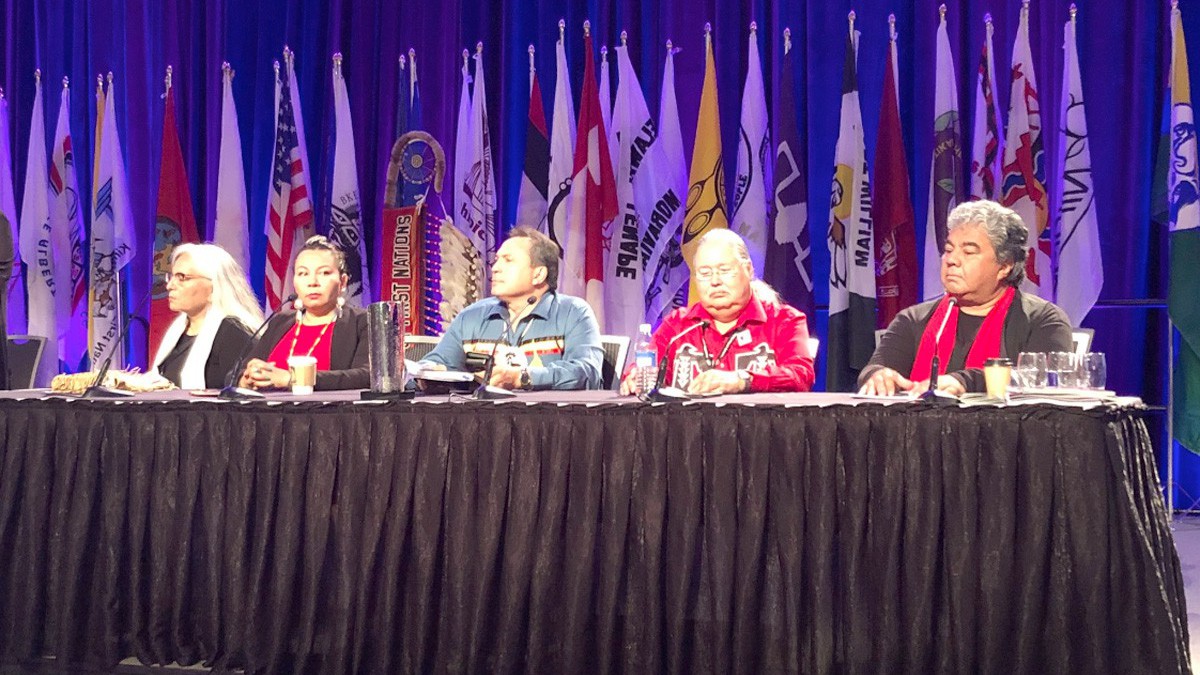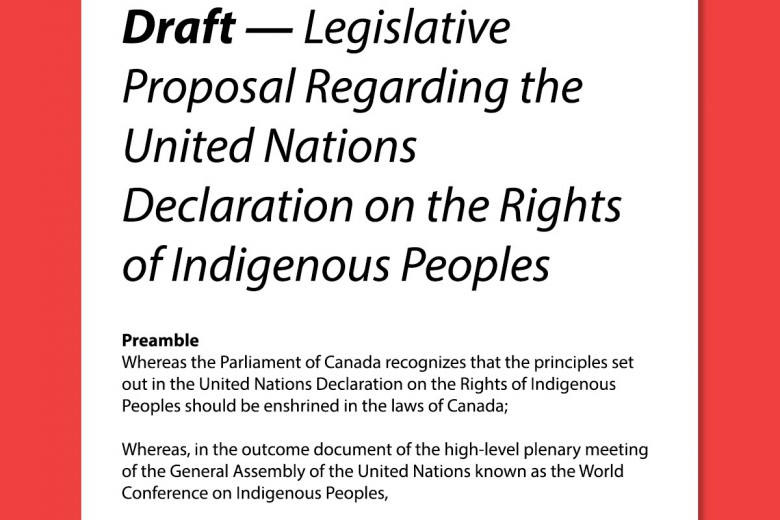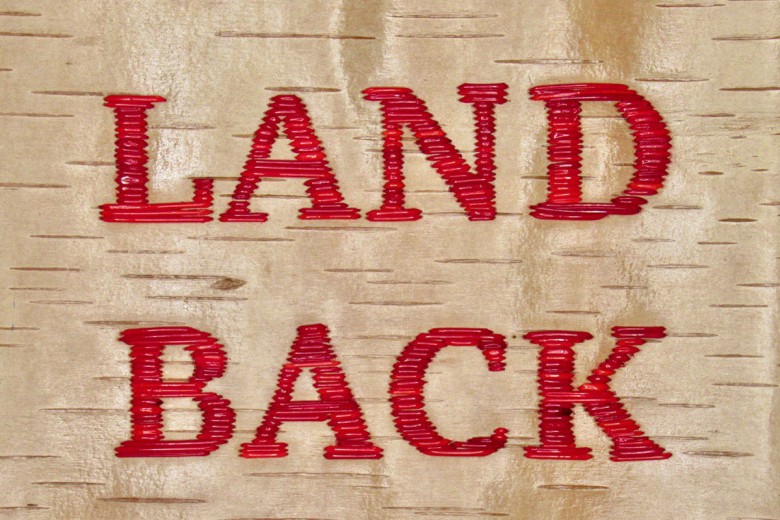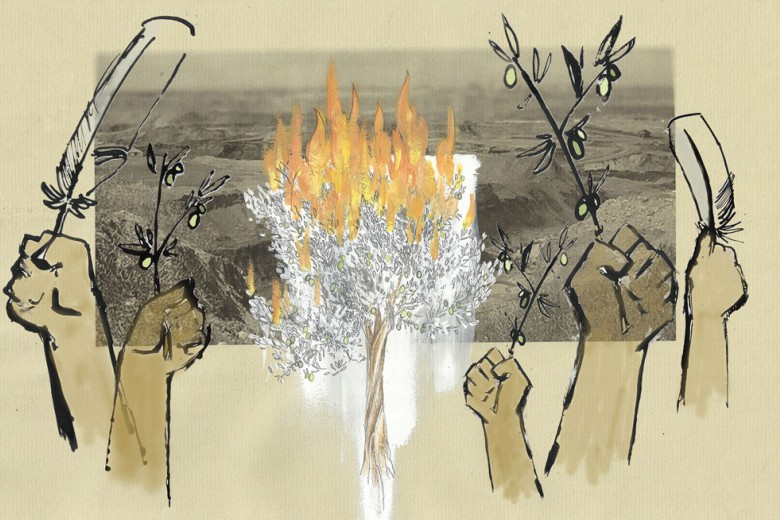As I write, the Assembly of First Nations (AFN) is holding elections for the Office of the National Chief, during their 39th annual general meeting. Amidst protests against the government buying and ramming through Kinder Morgan’s Trans Mountain pipeline expansion, and camps fighting for justice for Indigenous children on the lawns of government buildings, candidates and past chiefs alike have argued that the AFN is out of touch with grassroots movements. Even as candidates promise to reform the AFN, the question remains: is the AFN even worth reforming?
Some argue that the AFN needs a fundamental restructuring, while others argue that voting changes are the answer. However, the problems that grip the AFN are far deeper than can be addressed through a simple restructuring. The AFN’s foundational idea – a national organization with a single grand chief – flattens the landscape of Indigenous priorities, and reinforces the settler government’s power over Indigenous governance.
The AFN has always been an advocacy agency with no real political power. But over time, it has become less and less of an organization meant to represent its membership, and more of a way for the settler state to justify colonial and paternalistic laws over Indigenous communities. One of the most obvious examples was the introduction of the First Nations Education Bill in 2014, when then-chief Shawn Atleo came to an agreement about the bill with the then-Prime Minister Stephen Harper, without the knowledge or approval of Indigenous leaders or communities.
The AFN has been used to create “token Indians” by companies and governments alike. In 2013 the former AFN national chief Phil Fontaine was hired by TransCanada to help the oil company persuade Indigenous people to support the Energy East pipeline, which would cross the traditional territory of 180 different Indigenous communities between Alberta and New Brunswick.
The AFN has been used to create “token Indians” by companies and governments alike.
The current national chief Perry Bellegarde often reminds us that he successfully lobbied the Liberal government into committing $17 billion in funding over seven years to First Nations priorities. But when that vast chunk of money was allocated by Indigenous Services Canada, the auditor general found that there was “inadequate use of data to inform funding decisions.” The report argued that funding decisions sometimes rested on out-of-date data that didn’t take many factors – like geographic isolation of communities – into account. The report also found that Indigenous Services Canada had determined language and culture funding “based on a proposal from one region that was then applied nationally regardless of specific conditions.” Because the federal government is in conversation with the national AFN, rather than being forced to meet with more local Indigenous governance groups, funding is distributed without a sense of the realities on the ground.
Bellegarde talks about “modernizing” the AFN – which could mean moving away from a structure that relies on colonial, provincial borders. But no amount of reform can excise the colonialism at the heart of the AFN. How can one single leader represent distinct, individual Indigenous communities? A national First Nations organization is a capitulation to the settler state. It erases our distinct identities and the accountability the federal government has to individual nations, via treaties. The fact that each federal government has been able to use the AFN and its national chief to approve legislation is an attack on individual nations’ sovereignties.
How can one single leader represent distinct, individual Indigenous communities?
The fact remains that AFN holds no real political power when it comes to the decisions of Indigenous Services Canada and the federal government. Therefore, AFN should be dismantled and replaced with a series of smaller organizations within territories and treaties, such as the Treaty 6 annual gathering. The needs of people within Treaty 4 differ from the needs of those within the Friendship Treaties, Treaty 3, or even Treaty 10 – and would be better represented by local leaders. Additionally, dismantling the AFN and moving towards territorial or treaty boundaries would still provide the Canadian government with an understanding of who would be in charge, fostering communication with those leaders and a nation-to-nation relationship. The removal of the AFN would break down the falsehood that Indigenous people are a homogenous group, and move us towards understanding the diverse identities of Indigenous people around the country.
During my time as the alternate youth representative for the AFN national youth council I had the opportunity to meet with then-chief Shawn Atleo. It was a few days before the 34th annual general assembly, held in Whitehorse, when it was announced that he wanted to address the youth council. Privately. I will never forget the look on his face – the look of a man that tried his very best and did not know how it got to this point – and the words that he told us. He warned us that, no matter your intentions in the beginning, politics “changes you.” A year later he resigned after criticism rained down in the wake of the First Nations Education Bill. I always felt that what he told us in that room was a sort of confession, and a foreshadowing of what was to be the future of the AFN.
I will never forget the look on his face – the look of a man that tried his very best and did not know how it got to this point.
Although I wholeheartedly believe that the AFN is irrelevant and should be dismantled before it causes anymore damages to Indigenous sovereignty, I also understand that we, as First Nations, need to gather to mobilize and be in spaces that are culturally significant and supporting. The environment at an AFN event is exhilarating for a young person or anyone elected into any of its positions. As a former youth representative, and proxy for my reserve, being a part of the AFN made me feel important. But in the face of “modernization” – including some people arguing to change treaties to move away from “race-based politics” and towards greater assimilation of Indigenous people into settler society – dismantling the AFN is urgent if we are serious about decolonization and taking back our individual sovereignty.







